Sometimes things don’t work out despite sincere efforts and right timing. Can we do anything about it? Yes.
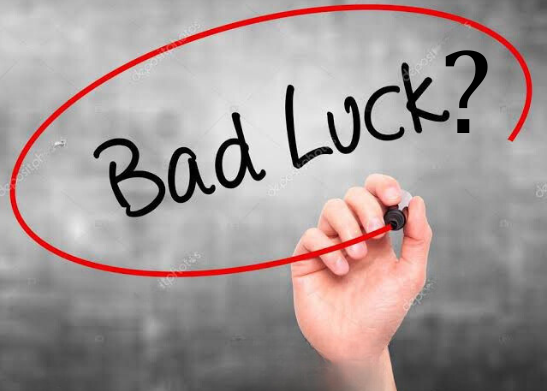
Samhitha recommends an activity that clears blockades in the journey of life. One must perform the activity at prescribed times of a year. The goal of the activity is to help one dedicate time at regular intervals to offer respects and gratitude to pithrude:vathas, departed ancestors. The activity is called srardha because it is to be done with sraddha, attention resulting from gratitude. When departed ancestors are unhappy, it affects our life in a way that does not let things progress for us. You may wonder…
How can a departed ancestor affect one’s life?
When we took birth in this world, many ancestors up until our parents paved a path for us. As you can see below, this is part of Lord’s creation process performed through Aniruddha. Thus, our gratitude towards them ultimately indicates our respect towards the creator Himself. If you do not respect them but say that you like to worship God, it is analogous to not caring for a body part of a person while saying you like Him.

To understand this, let’s look at Lord’s set up of the world.
Lord set up a process and created a structure to bring us into this world. He appointed Aniruddha as the adhishta:na de:vatha, the pervading caretaking authority, for the process of bringing new life into the world.
Lord set up a process and established a structure to protect us while we are here. He appointed Pradyumna as the pervading caretaking authority for the process of protecting life in the world.
Lord set up a process and created a structure to take us to the next step post current life. He appointed Sankarshana as the pervading caretaking authority for the process of shedding the due bodies, death.
Lord set up a structure to liberate us from the cycle of birth and death resulting from one’s karma. Lord Srimannarayana is taking care of this activity Himself.

What is the process to offer respects to departed ancestors?
Starting the day of departure, there is a set of recommended activities to perform for 10 days. Post that, there are 2 days of events; concluding with another 2 days of events. This process is called Vykunta uthsavam or Paramapada uthsavam. Anyone following Vyshnava sampradaya adopts this process.
The core essence of the ritual and process is to give family members a chance to wish the departed soul a blissful journey to Lord’s divine feet, like the alwars who attained that ultimate state of existence. That is why, the conducting team of scholars chant divya prabandham composed by alwars so that the Lord is pleased. When the Lord is in a pleased state, any wish that one may desire and seek gets granted. After completing the chants, the family members seek Lord for granting the departed soul the ultimate state of existence.
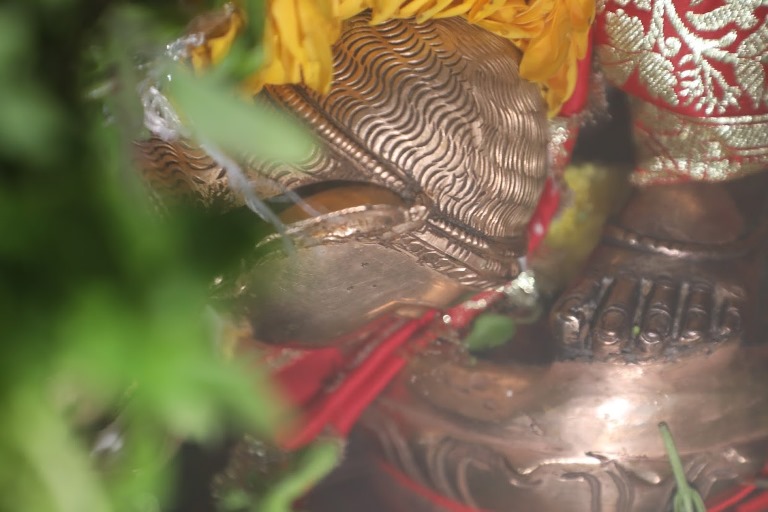
Then, the sons or son-in-laws or any others as wished by the departed soul must visit Gaya and perform the recommended process and offerings at Vishnu Pa:dam. Post this, the same must be performed at Bramhakapa:lam.
Once this process is completed, one is neither required to perform any process every month of the first year nor every year. However, out of love and respect for them, the family members can perform a sankalpa based process allowing them to feel connected and blessed by the departed souls.
What is the process for those who don’t follow Vyshnava sampradaya or non-bramhins?
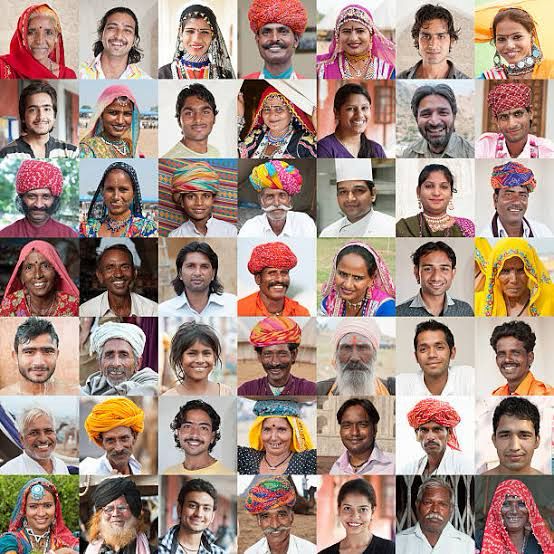
One does not need to be the follower of Vyshnava sampradaya or belong to a caste to offer respectful concern or interest for departed souls. It is a duty that we must practice so we stay grounded about our origins.
Not caring about such recommendations will create a sense of arrogance in a person and cause detachment with origins, creating certain blockades or hurdles in their journey of life. God’s grace is directed through their blessings for us where appropriate. Thus, it’s beneficial to us that we imbibe a sense of gratitude for our parents and ancestors, living or departed.
Is it true that not performing srardha blocks the departed soul from attaining moksha, the state of ultimate liberation and joy?
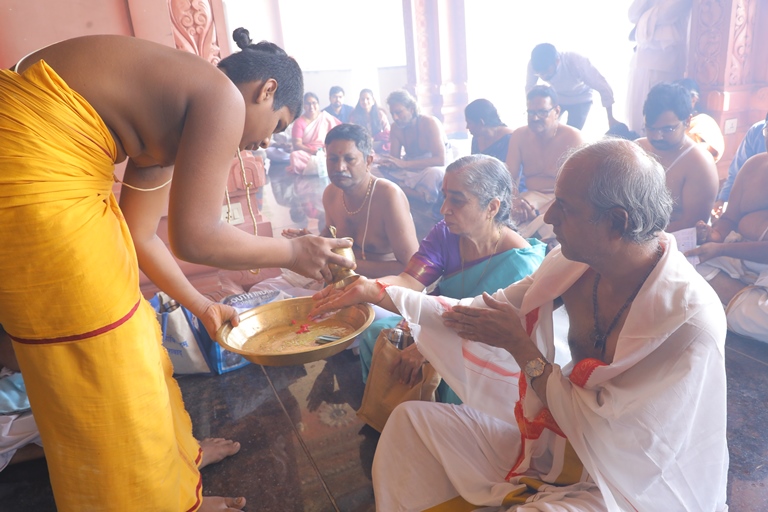
No! It is not true that all these recommended activities grant a departed soul moksha, the ultimate state of existence. However, they allow us to fulfill our responsibility of showing our gratitude for them. Because, we are indebted to them for having taken some part of them in forming the body we are currently in. When it comes to granting moksha, it is only God who takes the full responsibility of the journey of a departed soul.
I didn’t know all of these earlier, what do I do now?
If you remember the thithi on the day your parents or ancestors have departed from this world, you can begin offering respect and gratitude to them as prescribed above. If you do not remember, then you can offer the same on the day of ama:va:sya during the Maha:laya pakshas, the last 15 days of the month Bha:drapada.
For all those ancestors who did not have a Vykunta uthsavam or Paramapada uthsavam performed after their departure or for those who do not know of this process but you wish to do your part of wishing them mo:ksha, the eternal abode of Lord Srimannarayana, you can take part in Vaibhave:shti. It is an ishti, a guided prayer that gives you a chance to pray Lord for fulfilling your desire for the sake of departed ancestors.

As a human being, it is good to have a sense for these and follow them. It not only is a good gesture towards the ancestors but also clears your blockades in life.
-From the discourse of HH Chinna Jeeyar Swamiji
Vaibhava Ishti,
Mahalaya pakshas(the last 15 days of Bha:drapada)
– 2nd Oct 2024, Divya Saketham


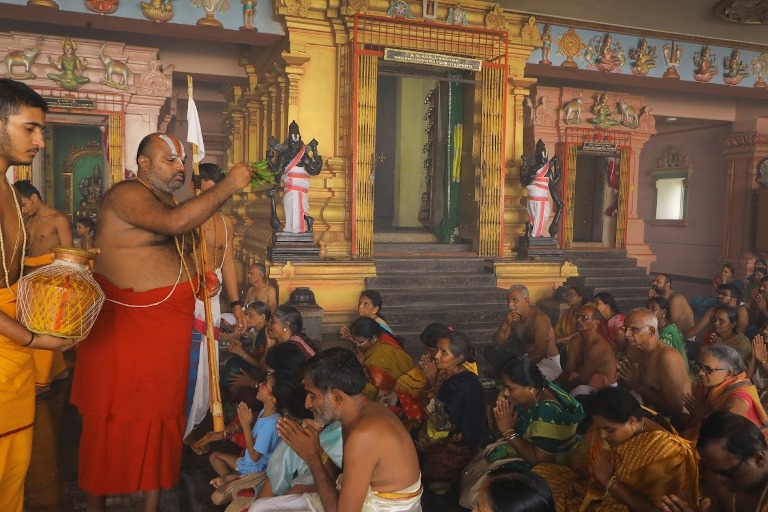

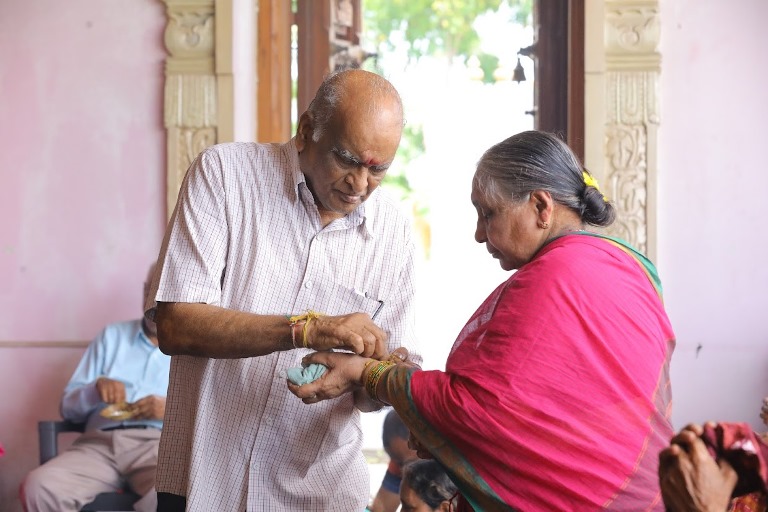

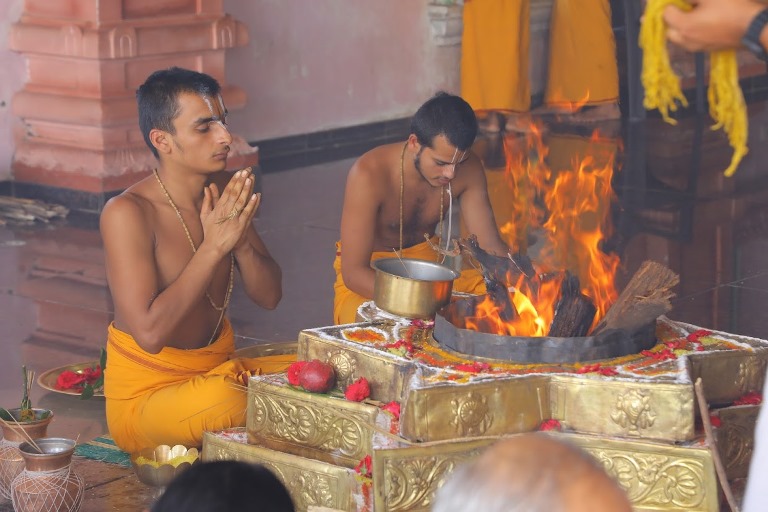
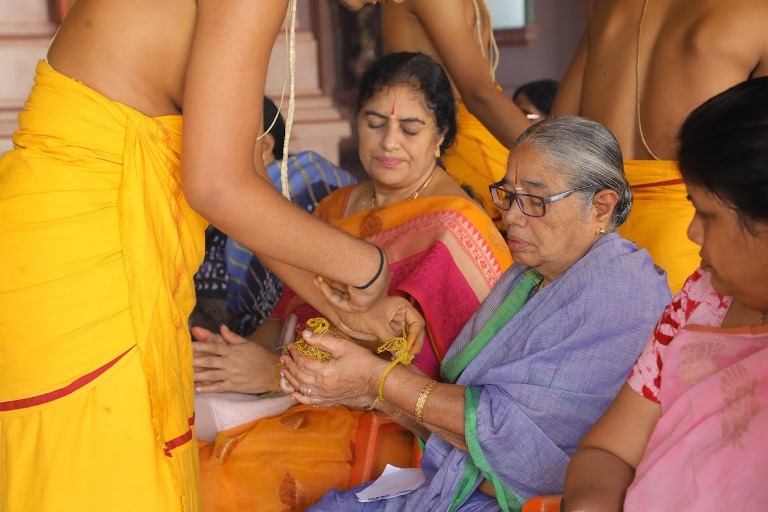

Jai Sriman Narayana 🕉️💓. My dad death anniversary on 20th June, how can I celebrate it with you on my dad’s name.
Jai Srimannarayana, Sri Swamiji will be in US on that day. The schedule can be seen on the website. It is generally advised that you pay a visit to Swamiji and request His guidance for the same. If that is not possible, please perform the ceremony and visit Swamiji at a later time to receive His blessings. As per the excerpt of Swamiji’s message, you can follow the guidance.
Jai Srimannarayana Swamy 🙏
Very useful information regarding the process through which our ancestors attain salvation through various means🙏
Yesterday we performed Shradda for our father
It is according to swamy ‘s advise
Jai Sriman Narayana
Jai Srimannarayana Swamiji,
Thanks a lot for explaining this process in detail. There are lots of confusion around this and what to observe becomes a big puzzle when different people say different things.
It will be highly for people like me if any information is provided on how to perform monthly Shraddam .
Jai Srimannarayana,
Please contact here and let us know if you got the information you require.
Contact: 7901422022
E-mail: Jiva@chinnajeeyar.org
Jai Sree mananarayana!
Jai Srimannarayana